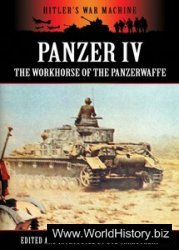As the British army tightened the noose around Boston, the Virginia Assembly met in an extralegal session to discuss what steps to take in the wake of what was happening up north. The words were later written from memory by William Wirt, and though they may not be the exact words spoken by Patrick Henry (and others), the general consensus among historians is that they certainly contain the spirit of Henry's remarks and are consistent with what we know of his eloquence. Patrick Henry is "the Gentleman from Hanover."It has been said that during revolutionary times, one should never underestimate the power of rhetoric. Henry's speech is one of the best known examples of the idea.
Mr. Pendleton: Mr. President.
The President: The gentleman from Caroline.
Mr. Pendleton: I hope this Convention will proceed slowly before rushing the country into war. Is this a moment to disgust our friends in England who are laboring for the repeal of the unjust taxes which afflict us, to extinguish all the conspiring sympathies which are working in our favor, to turn their friendship into hatred, their pity into revenge?.Are we ready for war?.Where are our stores—where our arms—where our soldiers—where our money, the sinews of war?.They are nowhere to be found in sufficient force or abundance to give us reasonable hope of successful resistance. In truth, we are poor and defenseless, and should strike when it becomes absolutely necessary—not before. And yet the gentlemen in favor of this resolution talk of assuming the front of war, of assuming it, too, against a nation one of the most formidable in the world. A nation ready and armed at all points; her navy riding in triumph in every sea; her armies never marching but to certain victory. For God's sake, Mr. President, let us be patient—let us allow all reasonable delay, and then if the worse comes to the worst, we will have no feelings of blame. . . .
. . . Mr. Nicholas: I agree heartily with the gentleman from Caroline. I consider the resolutions of the gentleman from Hanover as hasty, rash and unreasonable. But, more than that,
I deem the militia upon which the gentleman depends as wholly insufficient. It will prove the bane of the war into which the gentleman from Hanover wishes to hurry us. Sir, I hope this resolution will be voted down but, sir, if the colony is to be armed, let us do it in the proper way. The late war with France proved the value of trained soldiers, and Virginia was envied by the other colonies for its two regiments of regular troops under the command of a distinguished gentleman present here. Let Virginia, if she means war, raise at once a force of 10,000 men to be trained and serve for the war. Short enlistments, such as this gentleman contemplates, will prove the bane of the war. But I speak for peace not war, till it is forced upon us.
. . . Mr. Nelson: I am a merchant of Yorktown, but I am a Virginian first. Let my trade perish. I call God to witness that if any British troops are landed in the County of York, of which I am lieutenant, I will wait for no orders, but will summon the militia and drive the invaders into the sea.
The President: The gentleman from Fairfax.
Mr. Washington: Mr. President, I am a soldier and believe in being prepared. For that and other reasons, I will give my vote for the resolutions of the gentleman from Hanover. Rather than submit to the present condition of things, I will raise one thousand men, subsist them at my own expense, and march myself at their head to the relief of Boston.




 World History
World History



![United States Army in WWII - Europe - The Ardennes Battle of the Bulge [Illustrated Edition]](https://www.worldhistory.biz/uploads/posts/2015-05/1432563079_1428528748_0034497d_medium.jpeg)





